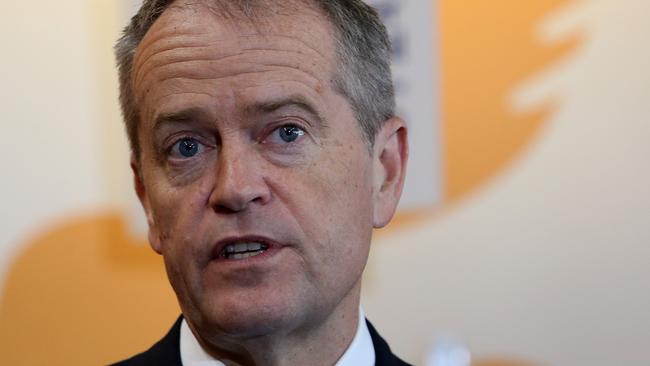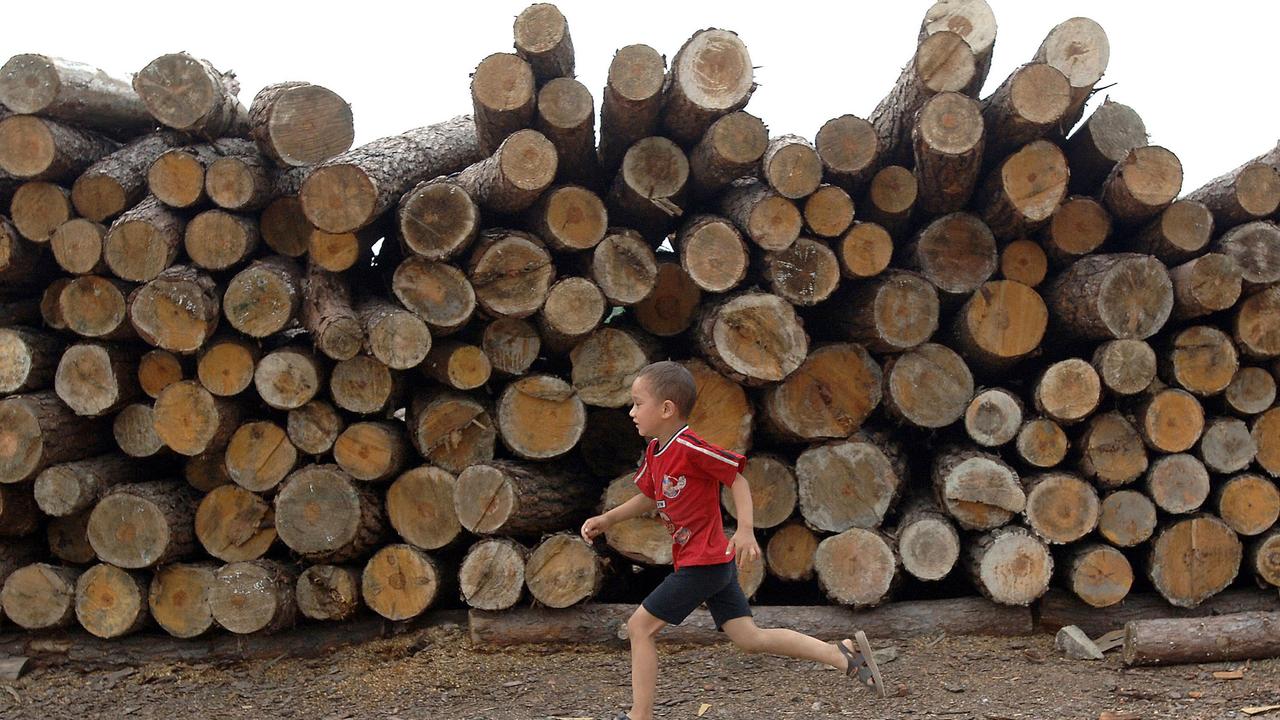Revealed: Shorten’s carbon costs to hit $25bn
Business could be forced to spend more than $25bn on carbon credits to meet Labor’s 45 per cent emissions reduction targets by 2030.

Australian businesses could be forced to spend more than $25 billion on international carbon credits to meet Labor’s 45 per cent emissions reduction targets by 2030, jeopardising one of Bill Shorten’s fundamental election pillars, which he declared would have no cost to the economy.
MORE : Federal Election 2019
Threatening a repeat of their 2010 scuttling of Kevin Rudd’s emissions trading scheme, the Greens yesterday warned they could block Labor’s use of international carbon permits in the Senate over concerns that the policy was overly reliant on international permits to meet the 1.3 billion tonnes of carbon abatement needed in the next 10 years.
The Labor leader yesterday came under fire after being unable to explain what the cost of the policy would be, given carbon permits are set to play a key role in meeting the target.
Experts believe the price of international carbon offsets could hit $62 a tonne over the decade but, allowing for an average of $50 a tonne, the hit on businesses would be about $25bn to meet Labor’s target.
This is based on an assumption that more than 500 million tonnes of abatement would have to come through either the purchase of international carbon credits or further land-clearing controls and reforestation, which would prove politically explosive in the bush.
A day after refusing to answer questions on the cost to the economy of Labor’s climate policy, Mr Shorten yesterday declared a 2015 report by economist Warwick McKibbin showed “our 45 per cent reduction, including international offsets, has the same economic impact as the Liberals’ 26 per cent”.
Mr Shorten seized on the McKibbin report’s forecast that economic growth would continue at more than 2 per cent under either scenario through the 2020s to dismiss suggestions Labor’s policy would be a hit to the economy.
“I don’t accept the characterisation that it is a cost,” the Opposition Leader said. “We’re going to grow. And we’re going to grow because we are going to move to a lower carbon pollution economy.”
The McKibbin study, conducted for the Abbott government, showed that a 45 per cent carbon emissions cut on 2005 levels — the same as proposed by Labor — would strip about 1 per cent of GDP by 2030, compared with 0.6 per cent under the Coalition’s 26 per cent cut.
By offsetting nearly half the necessary cuts with international carbon offsets, which Labor has committed to doing, the McKibbin study found the GDP hit from a 45 per cent emissions reduction could be slashed to 0.6 per cent — the same cost as under the Coalition.
The study did not factor in the government’s use of carried-over credits from over-achievement in the Kyoto climate agreement, which Labor had elected not to use — a move that will further push up the cost of its policy.
Professor McKibbin cautioned that the modelling assumed a carbon price mandated by the government at the time of $US5 a tonne in 2020, rising to $US10 in 2030. “If the price of offsets in the world is higher than we assume, that effect is gone,” he told The Australian yesterday. “We don’t know what the price of offsets will be in 2030. These numbers are not precise in any sense.”
The price of carbon permits on the EU market has more than tripled in the past year due to reforms to curb oversupply. Permits for delivery in December traded at €26.86 ($42.22) per metric ton on Tuesday. Modelling by former government scientist Brian Fisher, an author on the Intergovernmental Panel on Climate Change and now head of BAEconomics, has estimated the international carbon price will be $62 a tonne by 2030.
A Labor campaign spokeswoman said yesterday the party was yet to determine how much of its 45 per cent in emissions cuts would be delivered through purchasing international permits.
Greens climate change spokesman Adam Bandt said the minority party would resist the use of international permits in any Labor scheme, threatening a Senate showdown with a future Shorten government.
“International offsets are like paying someone to go on a diet for you while you stay at home eating burgers and pizzas,” Mr Bandt said.
“I’m confident climate laws can pass the new Senate, but Labor is going to have to give up on international offsets and accept a plan to quit coal. Greens and Labor worked together and compromised in 2011 to get real climate action and we can do so again.”
The Greens under Bob Brown sank Mr Rudd’s carbon pollution reduction scheme, arguing it wasn’t ambitious enough. The party backed Julia Gillard’s carbon tax the following year.
Energy Minister Angus Taylor said yesterday Labor needed to tell voters and the business community how much would have to be paid to international carbon offset brokers under its policy. “Australians need to be informed about the amount of money that is going to be paid to other countries as part of this scheme,” Mr Taylor said. “If international credits average $50 over the decade, if they have to achieve 500 million tonnes, that’s $25bn going offshore.”
He said Labor was also yet to explain what emissions target industry would face, how fast would emissions be brought down, how its emissions trading scheme would work, and how it would treat emissions from the heavy transport fleet.
Under its policy, the Coalition has to cut 328 million tonnes of carbon emissions to meet its 26 per cent reduction under the Paris target by 2030. Labor has to cut about 1.3 billion tonnes. Government analysis of Labor’s policy suggests it will deliver just 815 million tonnes of abatement by 2030 without significant controls on land clearing and the purchase of international carbon credits. The 45 per cent reductions in the energy sector would lead to a reduction of 247 million tonnes, while emissions controls on cars would deliver a reduction of 59 million tonnes, according to the former Climate Change Authority.
Agriculture is exempt from Labor’s policy. The expansion of the safeguard mechanism on the business sector, which will cap carbon emissions for companies that produce more than 25,000 tonnes of carbon a year, is estimated to lead to a reduction of 509 million tonnes. This leaves 511 million tonnes still to be taken out of the economy that would have to be largely met through the purchase of international carbon permits.
The debate yesterday came amid new evidence of a surge in employment in the renewable energy industry, with new ABS figures showing 17,740 renewables jobs in 2017-18, up by 28 per cent on the previous year.


